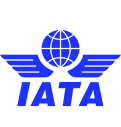For some passengers with physical or hidden disabilities, flying may be inconvenient, worrying or even painful. The airline industry is committed to ensuring that safe, reliable and dignified air travel is equally accessible to all passengers. Airlines and airports are working with representative groups from the accessibility community to make flying as hassle-free as possible.
Guidance for Airlines
Transport of battery-powered wheelchair and mobility aid guidance
The Guidance on the Transport of Mobility Aids supports airlines in accepting and transporting battery-powered wheelchairs and mobility aids safely and efficiently. This guidance includes details that passengers need to provide to airlines in order to ensure battery-powered mobility aid can be accepted and loaded onto the aircraft.
> Fill in this form to download the guide.
IATA Positions on Passenger Accessibility
> Fact sheet: Air Transport Accessibility (pdf)
Need for harmonization of disability legislation
We recognize we can and should do more. One area of concern is the proliferation of differing disability legislation across the globe, which creates confusion for passengers with disabilities, difficulties for airlines, and raises potential safety implications. Critically, there is no common definition of a passenger with disabilities or agreement on the minimum service levels they can expect when traveling by air.
IATA advocates for a joint government and industry approach, that meets the needs of passengers with disabilities, while ensuring efficient and safe air transport. In particular, working with the International Civil Aviation Organization (ICAO), IATA is campaigning with states to closely involve the airline industry in the inclusion of the UN Convention on the Rights of People with Disabilities (UN CRPD) into national aviation legislation and policies related to accessible air transport.
One person one fare
One person one fare (1P1F) refers to the proposal that a disabled traveler or persons who are disabled by reason of their obesity and who is required to use extra seats, either for an accompanying carer or because they cannot fit in a single seat, be only charged the price of a single seat.
In the case of an accompanying carer, that person would effectively travel free of charge. At present this is not a legal requirement anywhere except on some domestic routes in Canada, although airlines in some countries have been “recommended” to offer this service.
The issue is a complicated one. A unanimous resolution at IATA’s 75th AGM in 2019 committed IATA members to ensure ‘Passengers with disabilities have access to safe, reliable and dignified travel’, and the industry is working hard with representatives of the disabilities community to improve travel for passengers with disabilities.
However, the industry does not support the 1P1F principle on several grounds:
- The finances of an air route are often precarious. The average airline profit per passenger in 2023 was $2.25. This can equate to around 3-4 seats in total on a flight. If these seats are given away for free, then the financial viability of an entire flight could be threatened.
- The circumstances under which a disabled or obese traveler would require two seats are not easily defined and could be open to abuse. A lack of single global definition would create an unworkable minefield of unharmonized requirements which would confuse airlines and passengers alike.
- Under the UN Convention there are longstanding definitions of proportionality and the reasonable steps that should be taken to ensure people with disabilities have equal access. This is why, for example, not all legacy metro stations in key cities have step-free access – the cost of retrofitting them all is disproportionately large. The same principle would hold for giving away free seats to disabled or obese passengers on aircraft.
Airlines remain committed to working with regulators and travelers with disabilities for proportionate and workable solutions to the various challenges of ensuring fair and equal access to air travel.
IATA position on face-covering for passengers with disabilities
Some passengers including those with no autonomy to put/remove a face mask, small children and those with certain medical conditions may not be able to use masks for a lengthy period. Some governments have published regulations on face mask exemption. Find more on the IATA position paper on face-covering for passengers with disabilities (pdf).
Mobility Aids Action Group
The first of its kind, a global Action Group was launched in 2021 to improve the handling of mobility aids for travelers with disabilities, including wheelchairs. The Action Group will involve a full range of stakeholders, including organizations representing travelers with disabilities, airlines, ground service providers, airports and mobility aids manufacturers. More details through the press release: Airlines Launch new Mobility Aids Action Group
Landmark Industry Resolution
During the June 2019 IATA Annual General Meeting, global airline leaders unanimously agreed a resolution calling on governments to adopt IATA’s core principles for accommodating passengers with disabilities. These principles aim to change the focus from disability to accessibility and inclusion by bringing the travel sector together with governments to harmonize regulations and provide the clarity and global consistency that passengers expect.
> Resolution on Disabled Passengers (pdf)
> Fact sheet: Air Transport Accessibility (pdf)
